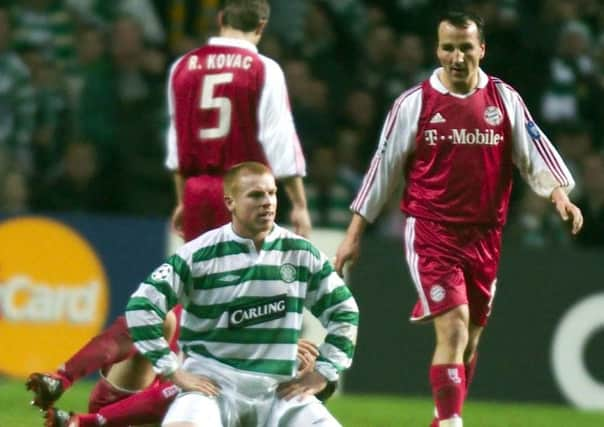ANALYSIS: Celtic must get over German glitch against Borussia


In all, Celtic have played 18 games against German sides in European competition. They have won only three of these and lost 11, making German teams a fraction more arduous for Celtic down the years than even Italian and Spanish sides.
As Brendan Rodgers’ men will discover this evening, there is a physical power and application common to German teams that in the past has tended to nullify the aggression and battling spirit considered strengths of Scottish clubs. Not always, though. On their road to the 2003 UEFA Cup final in Seville, Celtic saw off Stuttgart. They did so thanks to a 3-1 first leg home win notably achieved without jaw-break sidelined Henrik Larsson, and which allowed them to survive a hairy return wherein they were lucky only to lose 3-2.
Advertisement
Hide AdAdvertisement
Hide AdThat Martin O’Neill-inspired victory stands as one of only two occasions that Celtic have got the better of German opponents – in terms of knocking them out of Europe, or finishing above them in a group section. Memorably, Liam Brady’s Celtic achieved the seemingly impossible in overcoming a 2-0 away first leg deficit against Cologne with a rip-roaring 3-0 win inside a raucous Celtic Park back in 1992.
The campaign after Celtic’s 2003 final in Seville, Bayern Munich arrived at Celtic Park for the second-last game of a Champions League section that O’Neill’s side would progress from were they to inflict defeat on the Germans. In a classic show of big-game mentality, Munich simply suffocated the encounter to register the scoreless draw that paved the way for them ensure their qualification in the last round of matches – which saw Celtic exit after losing in Lyon. Bayern’s point at Parkhead marked the first time in six games at home in the competition that Celtic failed to win.
The club’s record against German sides is unflattering in part because it wasn’t until their 14th season competing in continental competition that they were drawn against a side from that region, in the form of the then East German team Sachsenring Zwickau. That UEFA Cup quarter-final meeting took place in the spring of 1975, which was a time when the great Jock Stein-Lisbon Lions era – a period during the European Cup was snared and the club regularly featured in the latter stages of that premier competition – had come and gone. Sean Fallon was in charge as Stein recovered from a near-fatal car accident but the club’s presence in a lesser European competition resulted from the failure to win a tenth consecutive title the previous season. A flu-hit Celtic were unlucky to lose the German return leg 1-0 following a first leg 1-1 draw, but the signs of decline were apparent in all aspect of the tie.
True, too, for another grim experience against German opposition, which came when Celtic lost 2-0 both home and away to Hamburg in the 1996 UEFA Cup. The 4-0 aggregate loss by Tommy Burns’ side to opponents who only narrowly escaped relegation represents Celtic’s biggest aggregate loss in a two-legged European tie – a joint award shared with a 4-0 against Paris Saint-Germain in the UEFA Cup the previous season and a 5-1 elimination suffered in a Champions League qualifier against Arsenal seven years ago.